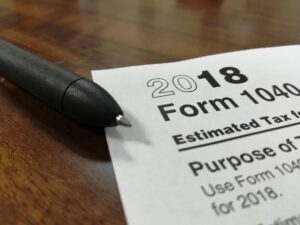By Kelley Walker Perry, Contributing Writer

Photo/pixabay.com
BOSTON – Older residents who are struggling financially walk into the Mattapan Family Service Center at 535 River Street, and find relief, in part from the state’s Senior Circuit Breaker Tax Credit.
The center, an Action for Boston Community Development (ABCD) site, is a nonprofit human services organization that provides low-income residents with the tools and resources needed to transition from privation to stability and beyond. Available help includes food, housing and energy assistance and more – including free tax preparation.
Help with tax preparation

Photo/Submitted
Bianny Suncar, director of the center, oversees the Volunteer Income Tax Assistance program. “All of our agencies as a whole – we’ve been doing tax preparation for 20 years now,” Suncar said. Roughly 5,000 people receive tax preparation assistance through the agency annually. A good portion of those are senior citizens, and all of them are disadvantaged.
“Our services are targeted to low-income folks,” she explained.
Tax credit for seniors
At the center, IRS-certified tax preparers take advantage of every available boon, such as the Earned Income Tax Credit, the Additional Child Tax Credit, the Recovery Rebate Credit – and the lesser-known Massachusetts Senior Circuit Breaker Tax Credit.
When an electrical outlet becomes overwhelmed, a circuit breaker activates to alleviate the load. Likewise, the homonymous real estate tax credit provides relief for those taxpayers who are encumbered by financial stress.
Tax preparers emphasize this credit when helping someone over 65. Most senior citizens the agency assists are renters, yet still meet the criteria.
“We ensure that we look into all the tax credits, so if they qualify, they get it,” Suncar said.
According to information provided by the Massachusetts Department of Revenue (DOR), this refundable credit on personal state income tax returns is available to taxpayers 65 and up within the tax year. If married and filing jointly, one of the filers must meet the age criteria by Dec. 31 of that year.
The taxpayer’s total income cannot exceed a certain amount – for the 2020 tax year, the limits are: $61,000 (single, not head of household); $76,000 (head of household); or $92,000 (filing jointly). Married taxpayers must file jointly to be eligible. Additionally, the assessed valuation of the real estate owned or rented as their principal residence cannot exceed $848,000.
Amending returns for previous tax years
Taxpayers who qualified for the credit but already filed this year should file an amended return, including a completed Schedule CB. According to a DOR spokesperson, the same is true for prior tax years 2017, 2018 or 2019; different income limits apply.
However, the amended-return clock is ticking.
Generally, a taxpayer has three years from the date the original return was filed, or the due date – whichever is later – to file an amended return. If a taxpayer filed a return for 2017 on or before April 15, 2018, then the deadline to correct or amend would have been April 15, 2021.
Eligible taxpayers who do not normally file a state income tax return might still obtain a credit of up to $1,150.
Those who qualify and are owed a refund on an original return will receive it by whatever means they specify. If it is on an amended return, then the refund will always be issued via a paper check.
For further information, visit the DOR website or call the Tax Department at (617) 887-6367, or toll-free in Massachusetts at (800) 392-6089. Boston residents seeking help with tax return preparation can find the closest ABCD center by visiting https://bostonabcd.org/#locations.B.












